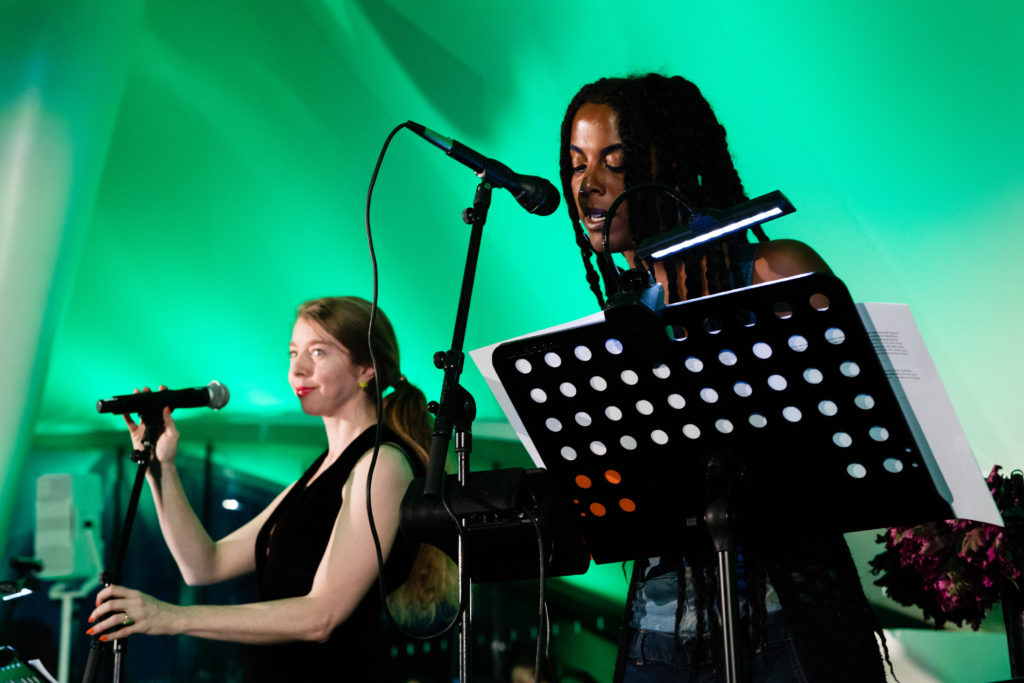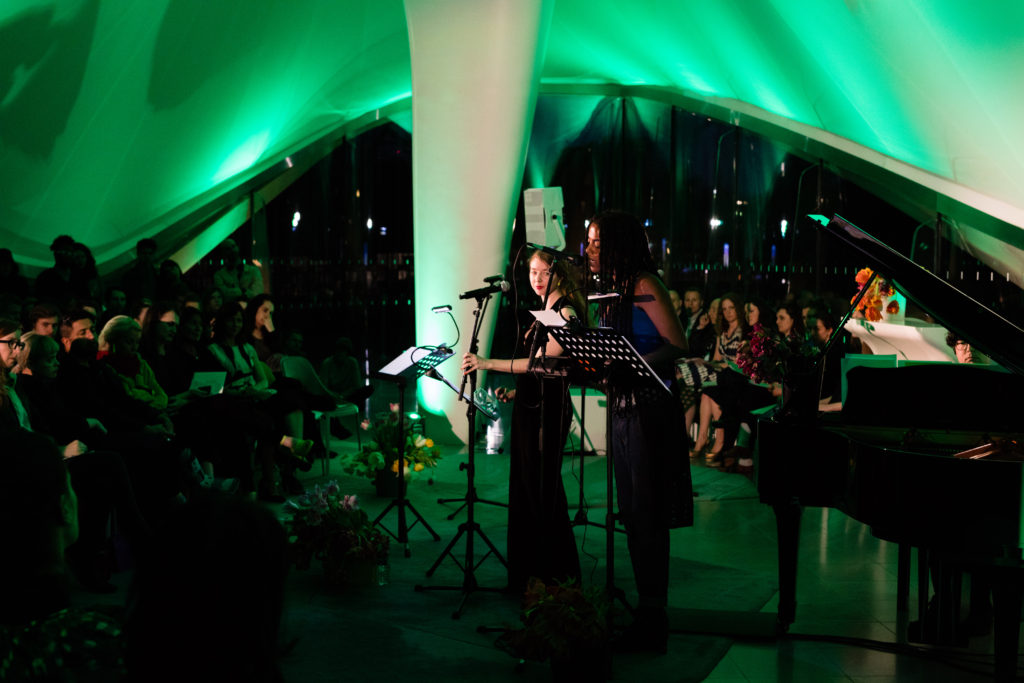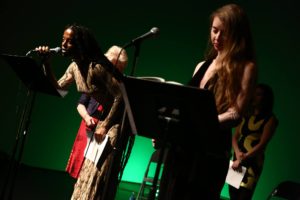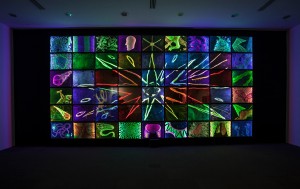The enactment of Emily Sundblad and Juliana Huxtable’s ongoing collaboration, Dichterliebe/Divine Bitches Part Two at London’s Serpentine Sackler Gallery on April 18 is a contemporary song-cycle. In the sequel to their Dichterliebe and all that jazz performance-work-in-progress presented at New York’s The Kitchen last year, Sundblad and Huxtable perform an operetta composed of gathered materials, ranging from 17th century German composer Robert Schumann’s Dichterliebe (‘Songs of Love’), extracts from porn sites, contemporary pop songs, original anecdotes of the everyday.
Presented as part of the Serpentine Galleries’ The Magazine Sessions performance programme, the Zaha Hadid-designed extension of the Serpentine Sackler space is saturated in an eerie green light and an array of floral bouquets. A grand piano stands in the middle of the stage-floor awaiting its moment among the murmurs of a heterogeneous audience that fades and gives way to the solemn entrance of a cast composed of Sundblad, Huxtable, pianist Ken Okiishi and London amateur choir Musarc.

Artist, performer and Reena Spaulings gallerist Sundblad’s teary eyes stare, bewildered, her fingers weave in delicate gestures as she opens with Schumann’s ‘Im wunderschönen Monat Mai’. A German vocal solo sings about love’s bloom in ‘the wonderfully fair month of May’ taken from the Dichterliebe song cycle, which in turn was inspired by writer Heinrich Heine’s 1840 Lyrisches Intermezzo (‘Cycle of Poems’). Sundblad sings of love’s bloom while wearing green earrings and orange nails that contrast with a long, black velvet dress with a plunging neckline that tumbles to the floor.
This short and brittle yet stunning performance is followed by Huxtable’s poems. The DJ, artist and activist is contrastingly dressed-down in a denim outfit, as she delivers her words —reading from a tablet —in a rich, hypnotic timbre illustrative of a more informal, even charmingly coarse tone. Filtered through a microphone, the House of Ladosha member also known for founding “nightlife gender project” #ShockvalueNYC speaks of Beijing, meetings at Walmart and body piercings. Like-minded amphibians come by tongues and fingers, images circulate and young love blossoms in the “courtyard of affective labour”, followed by mantras of licking “each others necks on ecstasy under UV” —sometimes repeated until losing its meaning.
The breathtaking songs by Sundblad alternate between solo renditions of Schumann’s compositions —the opening tears of joy are soon replaced with those of sadness in ‘Ich hab’ im Traum geweinet’ —Wystan Hugh Auden’s ‘Funeral Blues’, and choral renditions of pop songs like Sia’s ‘Chandelier’ and Rihanna’s ‘Needed Me’. A surreal passage, read from Sunblad’s phone, follows: a dead doctor and a husband, a grief shared on Facebook and other stories in precede a fearless feminism in the canyons of West Texas. It claims “everyone is in a hurry in hospitals, and their colors and textures stay the same, whether life or death is produced”. The dramatic fragility free falls into a more abject mode, turning lyrics about love and loss in dreams into drunkenness and despair; still candid, though alcoholic and hopeless.

Sundblad’s performance leads again to Huxtable’s reverberating voice, in some ways reminiscent of Laurie Anderson, in which its miked mutations enhance the machinic side of her vocal, slowly stripping it of its humanity and making it sound Cyborgian. Huxtable’s voice becomes more and more distorted throughout the performance, as its fed through a filter, becoming an abstraction: a vibrant, powerful wave, piercing the public’s brains with its blurred deep sound, going back-and-forth between its original state and an absolute alteration.
Both Sundblad and Huxtable appear divine like the performance title, reciting an updated version of Schumann’s cycle of songs and romance, often performed by men. In rigorous turns they enact the lyrics and poems, respectively performing the roles of composer Schumann and poet Heine, through a set of copy-pasted writings, erotic material, popular songs, and former’s original ‘Lieder’. The pompous bouquets, perhaps a gesture towards the Romantic era from which Dichterliebe/Divine Bitches Part Two was born. By the end of the evening, stems droop and petals drop as the flowers are already dying, fragmented and falling apart as they come to the end of their course.**















